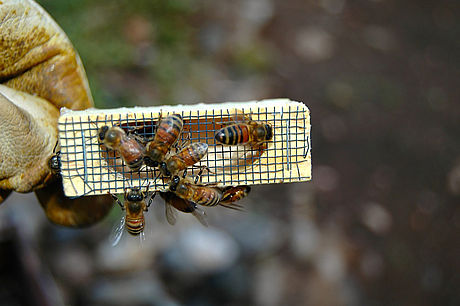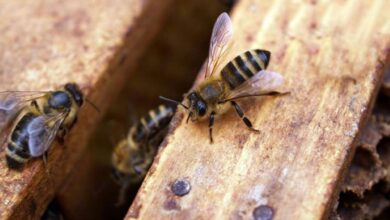Bees are delivering natural pesticides


One of the most persistent problems in modern agriculture is its reliance on heavy pesticides. Not only this pollutes water and soil but also kills many beneficial organisms those same crops depend on, like bees. Nonetheless through a technology called “entomovectoring,” pollinators can carry tiny amounts of powder to flowering crops and avoid large-scale spraying of harmful chemicals.
The technology was developed by researchers in Canada and Europe but has now reached Colombia. Since 2014 a group of scientists from Colombian National University has been working on a project of entomovectoring to save strawberries plantations in Sibaté, Guasca and Mosquera.
They use the same technology developed by Professor Peter Kevan, which consists on equipping commercial beehives with trays containing a powder, and when bees are leaving the hive, they tramp through the powder and carry it on their limbs the way they carry pollen.
The powder can protect the plant from a particular pest or disease when dosed with the appropriate bacterial, viral or fungal additives and according to Canadian Company Bee Vectoring Technology, these biological agents don’t harm the bees.
“We began working with strawberries because the Cundinamarca department has plans for exporting this product and aims to guarantee and advertise its low toxicity levels,” explained Professor Judith Figueroa, lead researcher.
“Right now we’re working in controlling a fungus called botrytis which affects strawberries from their early development but can also affect the whole plantation,” she added.
According to entomovectoring studies bumblebees are more effective than honeybees when used in greenhouse crops, as strawberries. Nonetheless in Colombia scientists have only worked with honeybees. Besides their work with strawberries, scientists have begun trials in organic crops and hydroponic gardening.
More so, scientists have been working on reproducing the most manageable bees and developing specialized specimens that prefer other crops like coffee and deliver certain pest-killing viruses and bacteria.
LatinAmerican Post | Maria Andrea Marquez




